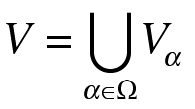
Ritual Kindles Vision
A Digitalist Framework for Modern Paganism
Books
Atheistic Paganism
Ritual Kindles Vision uses recent analytic metaphysics and ancient pagan philosophy to develop a modern naturalistic paganism. It develops a reasonable paganism, which is supported by our best science and ethics. It is not affiliated with any current religious or political ideology.
The videos here discuss some of the concepts in this paganism.

|
Reasonable PaganismAn introduction to my book Ritual Kindles Vision. |

|
The Plotinian ImageThe Plotinian image includes the five elements of water, earth, air, light, and fire. It illustrates the architecture of our modernized Plotinian system. |

|
The Plotinian ZeroWhy is there something rather than nothing? Because non-being negates itself. The self-negation of non-being is the Plotinian Zero, which logically comes before the One. |

|
The Plotinian OneHow can we think about the Plotinian One in logical terms? We turn to Quine: "to be is to be the value of a bound variable". |

|
The Good is not the OneThe One is at the bottom of the great chain of being; the Good is at the top. Things evolve up the chain from the One to the Good. |

|
Plotinus and Set TheoryFour axioms of set theory are found in Plotinus. |

|
The DemiurgesThe forms are binary strings. They are programs for the demiurges, which are cosmic computers. By running their programs, the demiurges generate their universes. |

|
A Naturalistic Cosmological ArgumentA naturalistic version of the cosmological argument shows that there exists a simple initial demiurge. |

|
The Evolution of Naturalistic GodsDemiurges beget demiurges. As they evolve, they generate increasingly complex universes. |

|
The Platonic Cosmic ComputerOur demiurge is a cosmic computer. It runs our universe. |

|
Plotinus: The Higher and Lower WorldsIdeas from evolution and modal logic help us to revise Plotinus to make his thought consistent with modern science. |

|
The Titanic ComputersOur universe is filled with titanic computers. Stars and planets compute. They are the titans. |

|
The Platonic GodsThe Platonic gods are natural computing machines. |

|
Plotinus and MagicPlotinus thought of magic naturalistically. Magic spells don't work. They do something else. |

|
Plotinus and ReincarnationPlotinus argued for reincarnation with retributive karma. But his theory is neither naturalistic nor moral - it needs to be improved. |

|
Naturalizing ReincarnationHow can we make the Plotinian theory of reincarnation consistent with modern science? Since Plotinus talks about a multiverse ordered by counterpart relations, we'll use those ideas. |

|
Your Digital AfterlivesA summary of my recent book on digital approaches to life after death. |

|
Infinity: Compression and AccelerationTo understand infinity, we need to understand compression and acceleration. An infinite whole contains a part with exactly the same pattern. |

|
The Divine MindThe Plotinian Divine Mind is an infinitely self-representative structure. It is a self-reflecting hologram. It can be understood in modern naturalistic terms using transfinite mathematics. |

|
Divine UnsurpassabilityA divine mind is an unsurpassable series of surpassable minds. Every divine mind is an absolutely infinite mind, realized by an absolutely infinite computer. And there are absolutely infinitely many divine minds. |